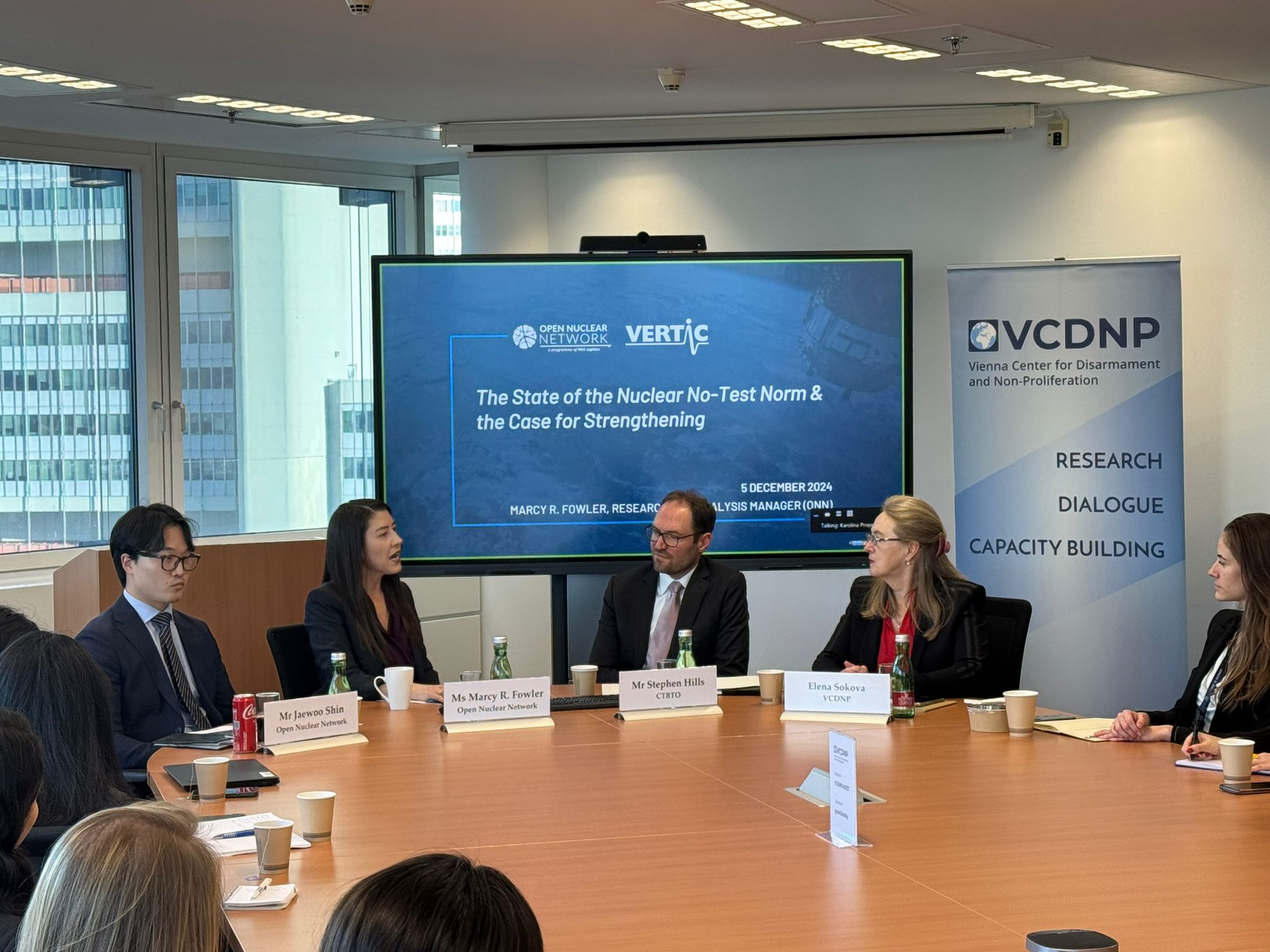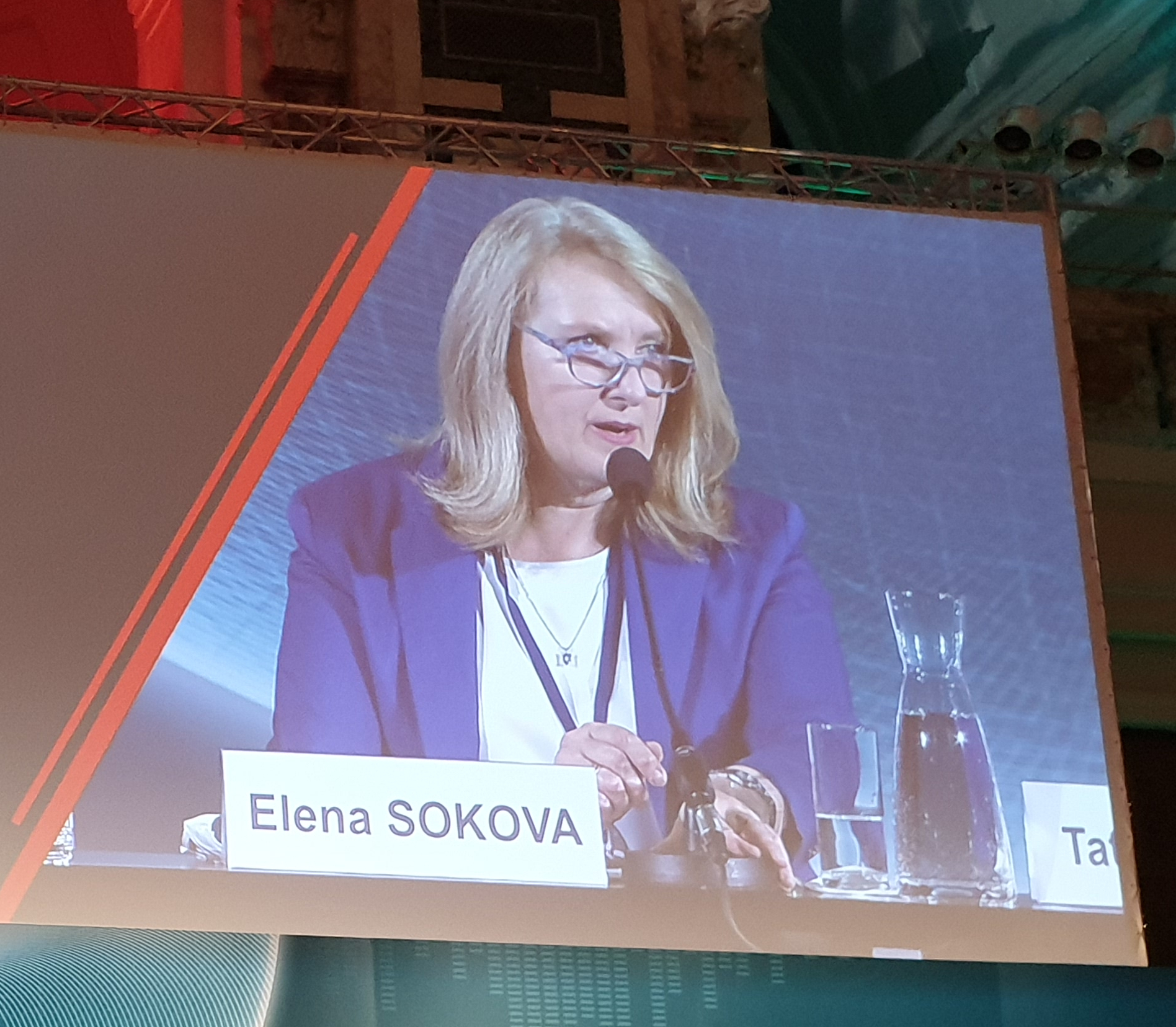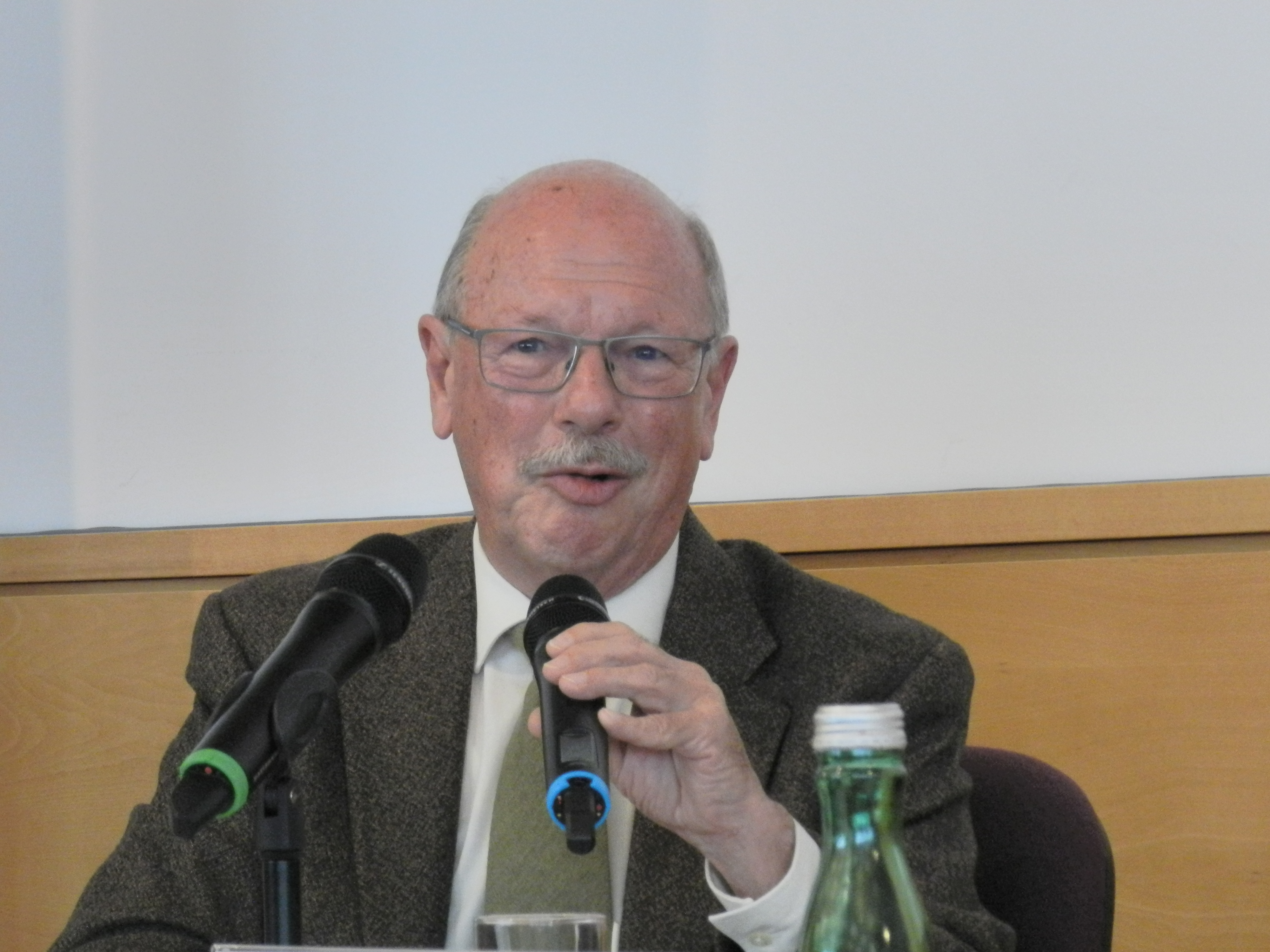
On 23 January 2019, the VCDNP held a public panel discussion on strengthening the normative standing of the Comprehensive Nuclear-Test-Ban Treaty (CTBT). The discussion was based on the findings of a recent research project conducted by John Carlson, former Director General of the Australian Safeguards and Non‑Proliferation Office, commissioned by the VCDNP with support from the Permanent Mission of Japan. The panelists featured John Carlson, Executive Secretary of the Comprehensive Nuclear-Test-Ban Treaty Organization (CTBTO) Lassina Zerbo, Ambassador Mitsuru Kitano (Japan), Ambassador Gonzalo de Salazar Serantes (Spain), Sarah Bidgood (James Martin Center for Nonproliferation Studies in Monterey, CA) and Renata H. Dalaqua (United Nations Institute for Disarmament Research). VCDNP Executive Director Laura Rockwood moderated the session.
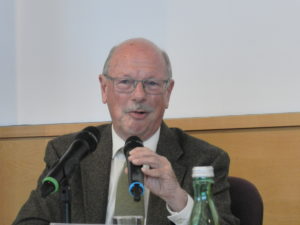
In introducing his research project, John Carlson highlighted that the draft paper examined actions that the international community should consider taking to bolster the CTBT. He emphasized at the same time that the CTBT already has substantial legal effect: the Vienna Convention of the Law of Treaties obligates signatory States to not defeat the object and purpose of the Treaty prior to its entry into force. Provisional operation of key elements of the verification regime, mainly the International Monitoring System and the International Data Centre, further add to the normative strength of the Treaty. However, despite all of the preparatory work carried out by the CTBTO, the Treaty cannot be fully implemented and its benefits realized until it enters into force. With this in mind, Mr. Carlson made a number of proposals on enhancing the normative standing of the Treaty, including:
The panelists commented on the ideas presented and urged the audience and international community at large to think of creative ways to enhance the normative standing of the CTBT.
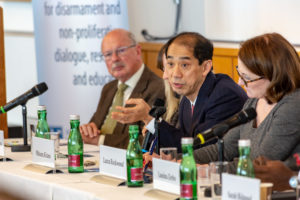
Among the possible measures to strengthen the Treaty’s normative standing, the proposal regarding provisional application of parts of the Treaty, such as Article 1, generated a lively discussion. The panelists noted that collective efforts would likely have the most impact and that timing is key. The panelists suggested that a collective statement declaring that Article 1 of the Treaty was in force for those countries who voluntarily chose to abide by it could provide momentum to move the CTBT forward. It was emphasized that such an action would not substitute the Treaty’s entry into force provisions but would help enhance the normative legal standing of the CTBT and the norm against nuclear testing. States could also utilize the concept of a “gift basket” in taking collective action(s) or making a joint statement on the CTBT, stressing their legal obligation not to test.
One of the panelists used the example of the Treaty for the Prohibition of Nuclear Weapons in Latin America and the Caribbean (Treaty of Tlatelolco) in suggesting a possible, creative way to move entry into force forward. The Treaty of Tlatelolco offered signatory States the right to waive, wholly or in part, the requirements for entry into force of the Treaty by means of a declaration deposited with its ratification instrument or subsequently. Such a provision allowed the Treaty of Tlatelolco to enter into force decades before its full application for those States that chose to waive the requirements. If such an approach were to be taken on the CTBT, the Treaty would not be held hostage by individual States. The more countries opt to waive the entry into force requirements, the stronger the norm against nuclear testing and the greater momentum for the full entry into force of the CTBT would be.
Given that the entry into force of the CTBT is a decades-long endeavor by the international community, the panelists observed that States should also seize every opportunity to bring the CTBT ever closer to its entry into force through the use of ongoing and existing tools.
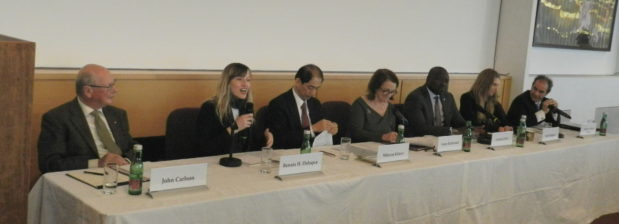
Several panelists saw the emerging dialogue with the Democratic People’s Republic of Korea (DPRK) as an opportunity to seek its signature and ratification of the CTBT. It was stressed that the CTBT should be brought into the discussions with the DPRK, especially in light of the next planned US-DPRK summit in February 2019. One panelist noted that by joining the CTBT North Korea could make it’s decision to destroy the Pyunggi-ri test site in 2018 more credible and assure the international community that the dismantlement was carried out in good faith.

Beyond the DPRK, panelists also discussed other opportunities for advancing the CTBT. Particular emphasis was placed on the CTBTO Youth Group initiative which has grown significantly since its inception in 2016. Youth Group members have already succeeded in conveying the value of the CTBT to new audiences both through their physical and virtual networks, and by helping individuals understand the benefits of the CTBT not just in detecting nuclear tests but also for its civil and peaceful applications. It was noted that many youth group members are from Annex 2 countries, helping to bring the matter closer to the States’ domestic constituents. The panelists also reflected on the need to increase the number of signatures and ratifications of the Treaty by non-Annex 2 States. It was stressed that every signature and ratification is important as it helps put pressure on those States that have yet to join the Treaty. Further attention was focused on the role of the signatory and ratifying States in advancing the CTBT’s entry into force. One panelist challenged the States to examine how far they had gone in convincing public opinion in their countries of the benefits of the CTBT and asked whether the ratifying countries were seeking opportunities to move the CTBT forward.
The panelists reminded the audience that the advancement of the CTBT would reaffirm the continued validity of past NPT commitments, highlighting that the preamble of the NPT recalls the determination to “achieve the discontinuance of all test explosions of nuclear weapons for all time.” They also noted that the promise to conclude the CTBT was central to securing the indefinite extension of the NPT in 1995, while the CTBT’s entry into force was the first of the “13 Practical Steps” for nuclear disarmament adopted by the 2000 NPT review conference. It was agreed that the current NPT review cycle offers an opportunity to reinforce the normative value of the CTBT and to “finish what we started” in terms of bringing the Treaty into force.
The discussion allowed the panelists and the audience to take a fresh look at the CTBT’s normative standing and possible ways forward on its entry into force. The comments provided at the event will assist in the revision of John Carlson’s research paper, the final version of which will be available in spring 2019.


